Case 11: Wiener Phenotype and the Lewis Blood Group
Let’s talk🩸phenotypes w/ a dive into 2 blood group systems using my own phenotype 🤗 I’m 🅾️➕
What’s most likely my Wiener phenotype as someone who is (half) White?
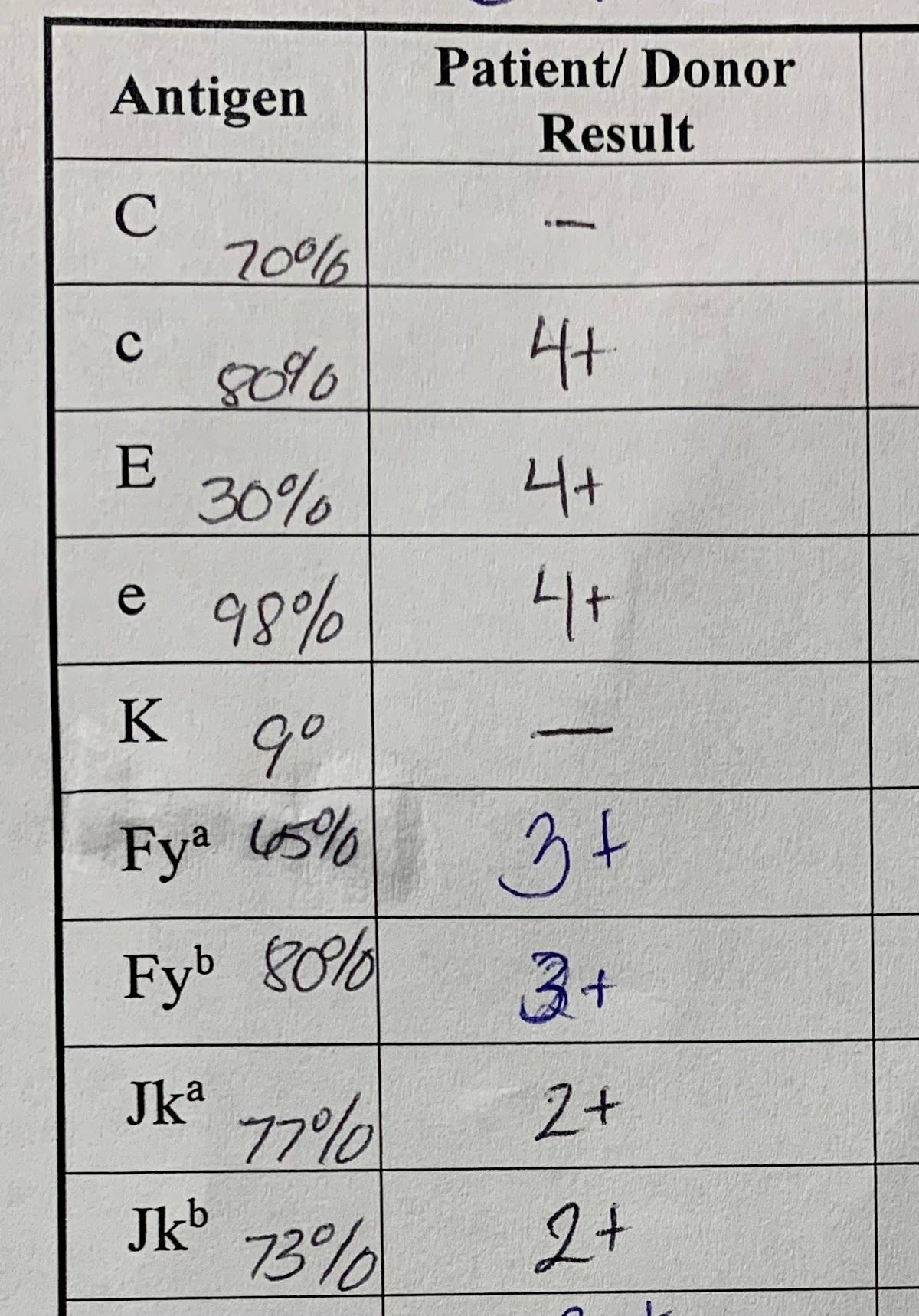
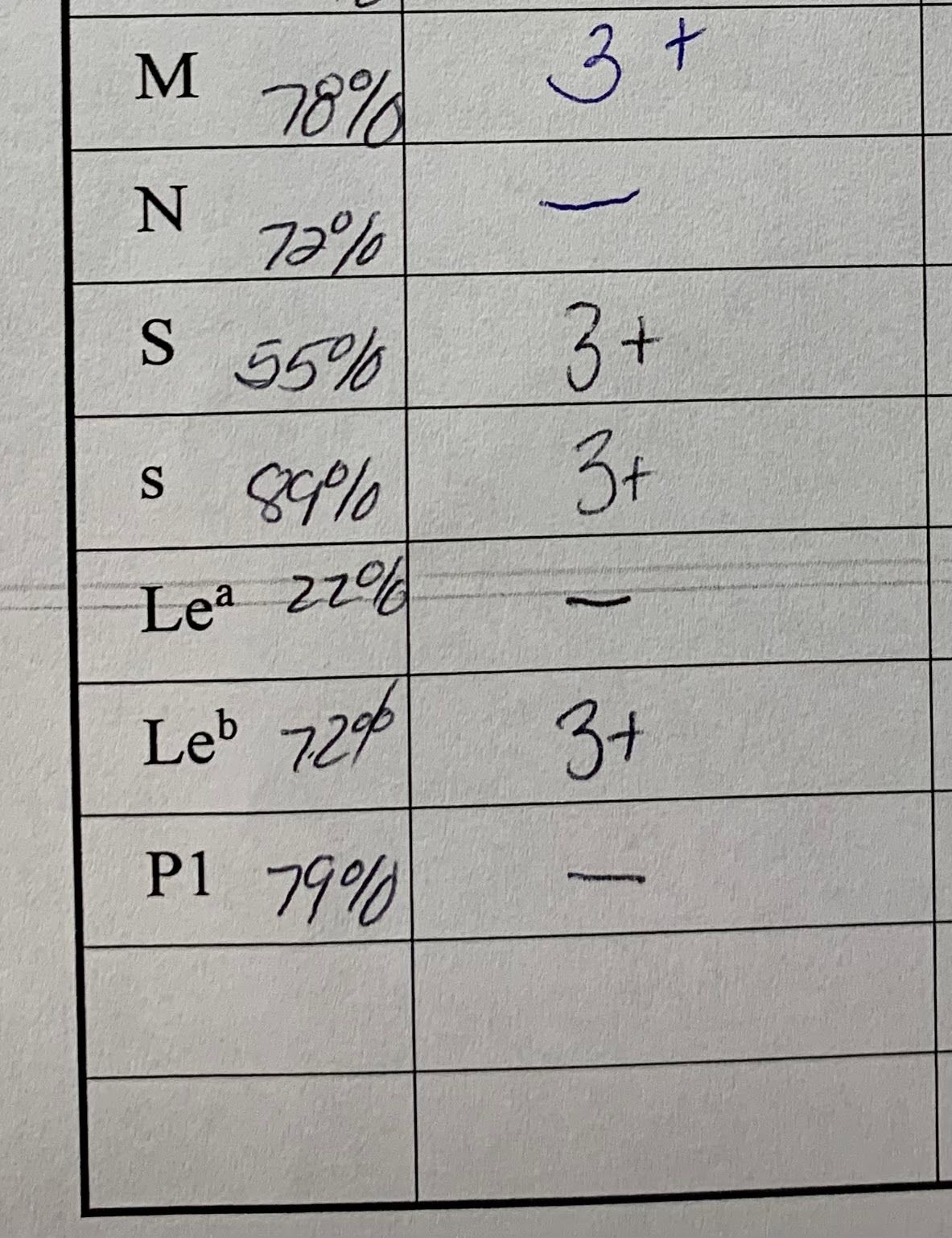
✨My Wiener phenotype is most likely R2/r (DceE/ce if you prefer Fisher-Race)✨
R0/R2 (Dce/DcE) is possible, but R0 is more common in the Black population compared to Whites and Asians
R2/r’’(DcE/cE) is also possible, but the r’’ haplotype is quite rare (1% or less)
Please see @bbguy’s excellent blog post about Rh system and nomenclature for more! 🤗

Next, we'll move on to the Lewis system.
The Lewis antigens (in contrast to other blood group systems) are not RBC antigens; rather, they are produced in tissue, secreted into body fluids (e.g. saliva)➡️adsorbed on to the RBC membrane.
✨ Lewis antigens are NOT antithetical, and we’ll see why below✨
Lewis phenotype is determined by 2 genes:
📌 Lewis gene
📌 Secretor gene
These 🧬don’t code for an antigen. They instead both code for a transferase ➡️ attaches fucose sugar to existing precursor chain
First, the Lewis gene ⬇️
🙅🏻♀️ If you don’t have the Lewis gene, you will type as Le(a-b-) and will not have Lewis in your body fluids
👍🏼 If you do have the Lewis gene, you will have some form of Lewis antigen in your body fluids (more to come…)
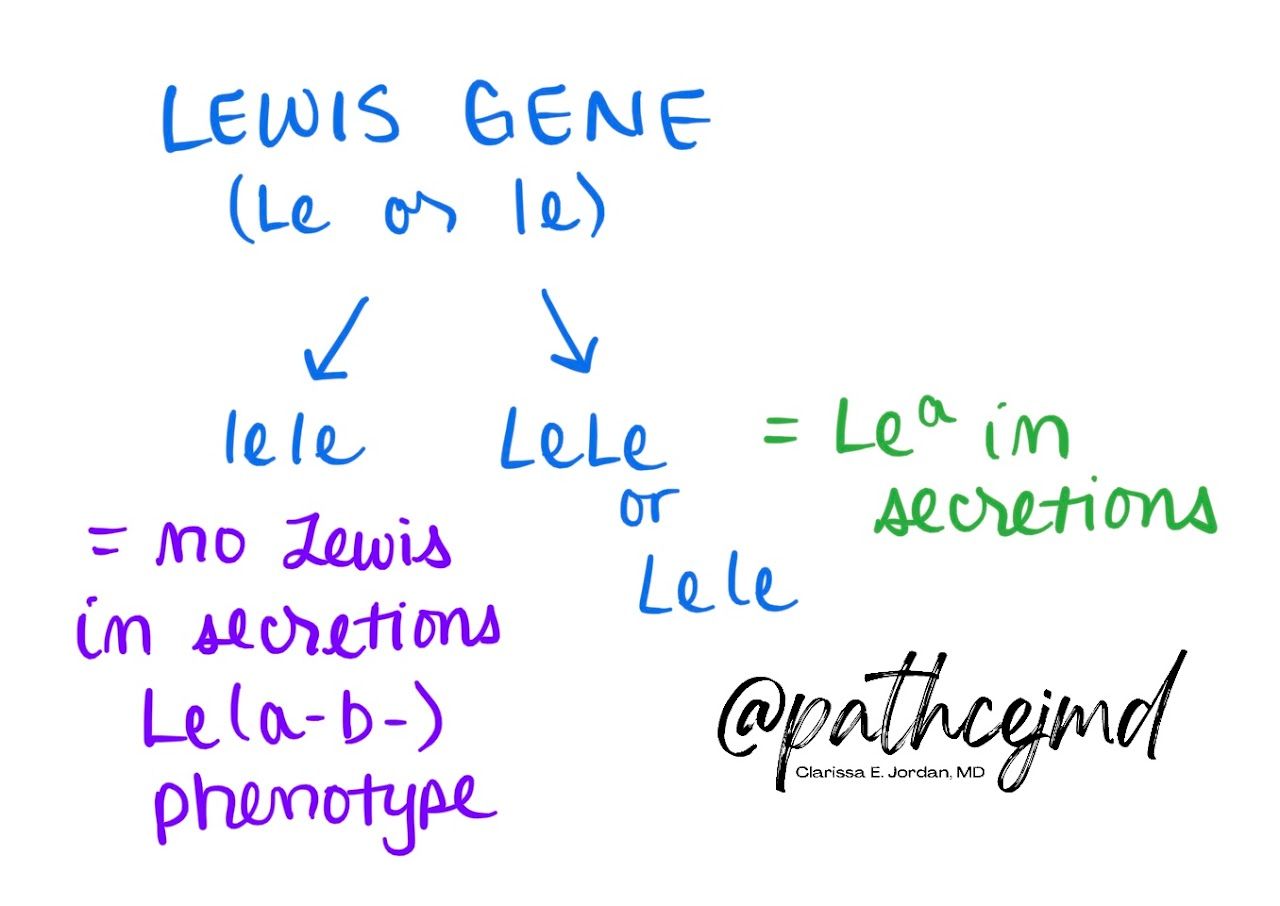
Second, the secretor gene. Those who are secretors (SeSe or Sese) have soluble ABH antigen substances in body fluids. Having a secretor gene influences the Lewis system too, via the addition of an an additional fucose sugar to the Lewis a antigen.
Based on this, I’m a secretor🤤
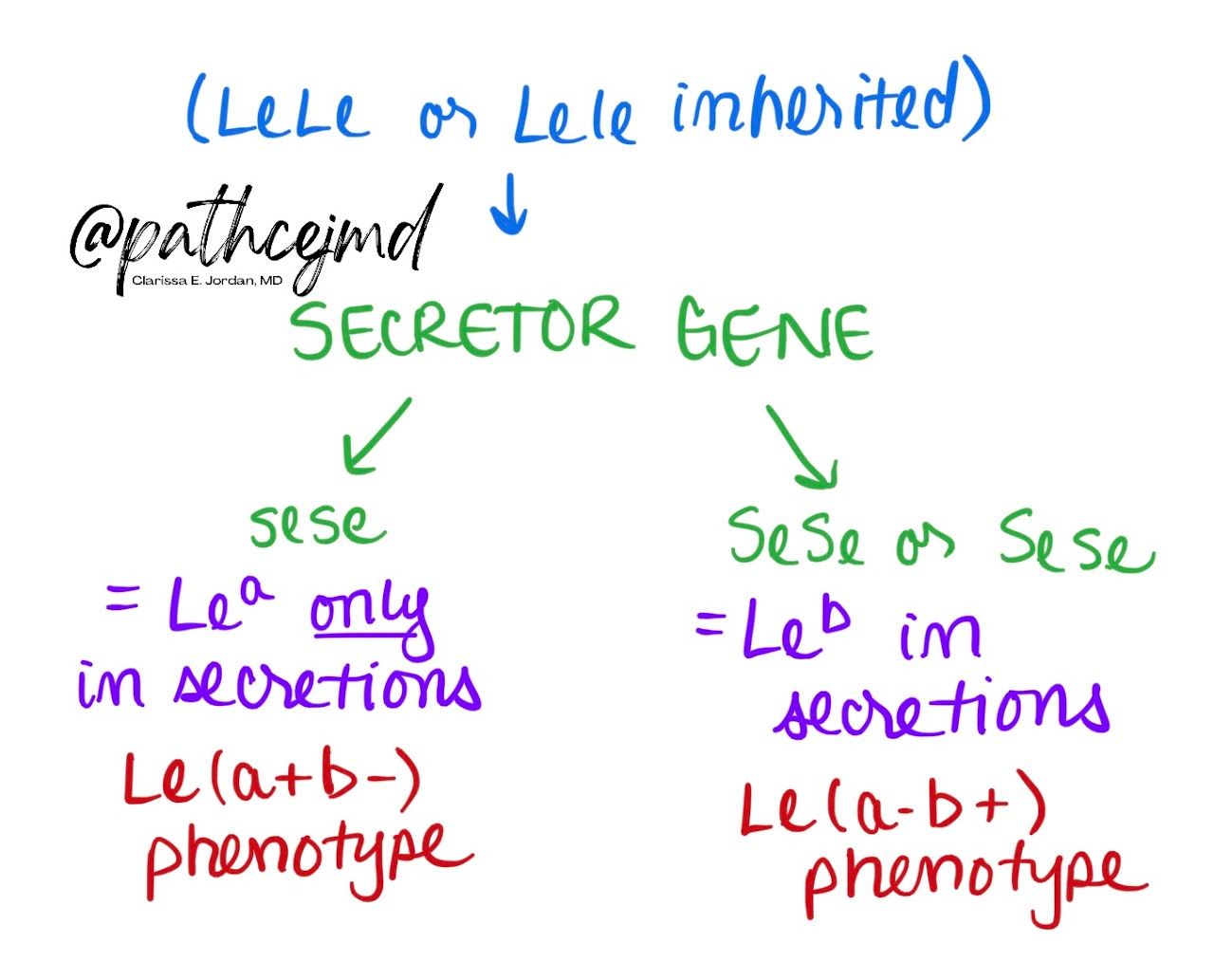
Again, the Lewis gene and the secretor gene are transferases, attaching a fucose sugar to a precursor chain.
I like to think of the Lewis a and Lewis b antigens as almost “additive” ⬇️ (and therefore NOT antithetical)
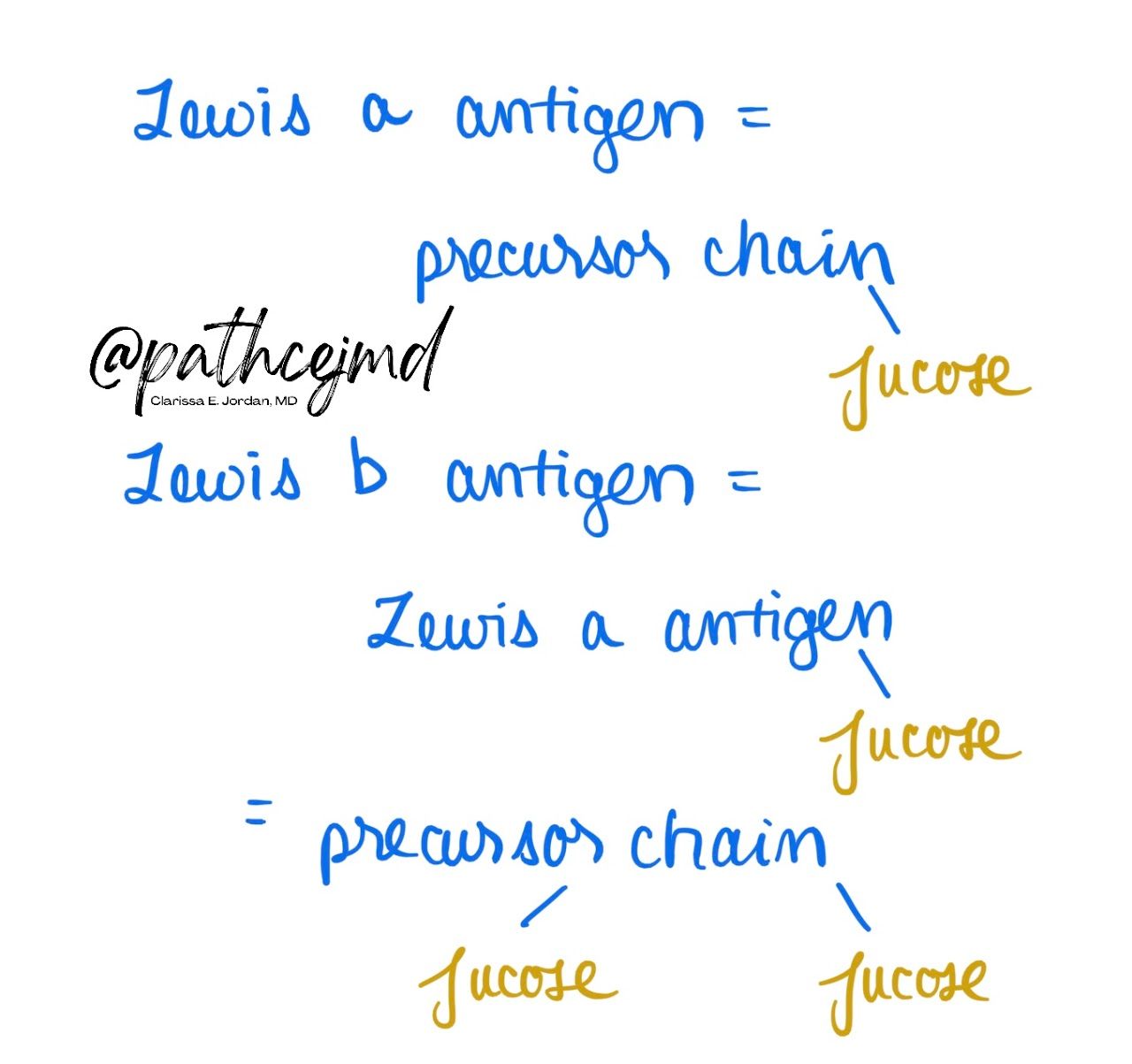
How does this play out in terms of antibodies?
📌 Le (a-b-) individuals can make anti-Lea AND anti-Leb antibodies
📌 Le (a+b-) individuals can make anti-Leb
📌 Le (a-b+) cannot make either anti-Leb or anti-Lea
Why? 🤔
Le (a-b+) phenotypes have some Lea antigen in their body fluids (not all of the Lewis a antigen got that second fucose sugar), so the Lea antigen is NOT seen as foreign.
That’s all I’ve got for now! Thanks for following along 🤗
Find this case on Twitter:
🩸#Blooducation #tweetorial🧵
— Clarissa E. Jordan, MD (@pathcejmd) May 4, 2022
Let’s talk🩸phenotypes w/ a dive into 2 blood group systems using my own phenotype 🤗 I’m 🅾️➕
Boards-relevant: What’s most likely my Wiener phenotype as a (half) Caucasian? Poll⬇️#PathTwitter @MayoClinicPath
(Always learning- feedback welcome!) pic.twitter.com/TDDz4TmoN2
